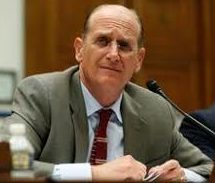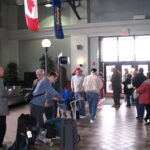Amtrak’s Boss Still Doesn’t Get it.
Since posting the commentary appearing below, I have been informed by an unquestionably reliable source that Richard Anderson did indeed travel extensively on long-distance trains early in his tenure as Amtrak president and CEO. Clearly, this was indeed “due diligence” and I regret assuming it had not been done.

Richard Anderson has been President and CEO of Amtrak for only six months or so and one has to wonder what he’s thinking. When he was running Delta Airlines and a policy was introduced that the paying customers didn’t like, consequences were minimal. Probably because other airlines were also doing it.
In his relatively brief tenure at Amtrak, however, Anderson has taken a good deal of heat for pushing through a number of cost-cutting measures with little or no sensitivity for his customers, in particular for his BEST customers—the sleeping car passengers.
Somewhere I read that Anderson has personally experienced travel on one of Amtrak’s long distance trains. Really? From where to where? It’s difficult to imagine Richard Anderson traveling incognito and actually spending an entire night in a Superliner roomette. Somehow I can’t picture him pulling that blue blanket out of its plastic bag and tucking it in around his mattress, or the next morning, freshening up in one of the tiny lavatories, then going into the dining car and joining three total strangers for breakfast.
It would have been a good idea to do exactly that, of course—due diligence, and all that—because it might have given him a glimmer of insight into why sleeping car passengers choose to travel across the country by train, what makes us so completely different from airline passengers, and why we have reacted so virulently to the cost cutting measures he has so vigorously imposed on us.
A Congressional mandate to break even is just not adequate justification and is more than enough indication that the Big Boss at Amtrak doesn’t understand his constituency. If he did, he’d be arguing our case before Congress instead of the other way ‘round.



